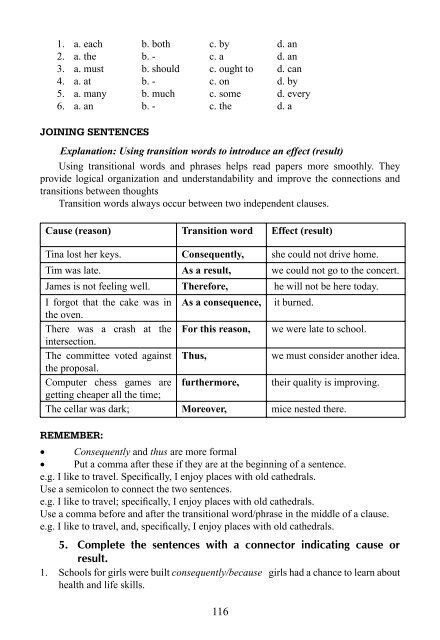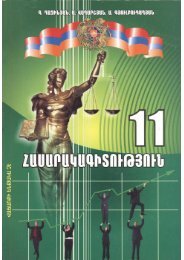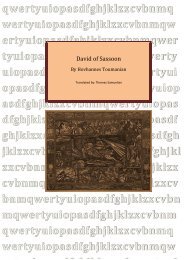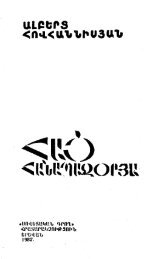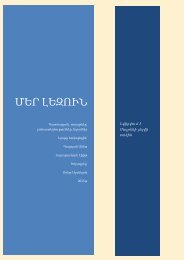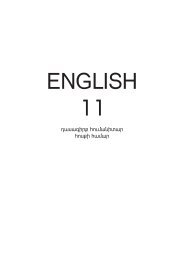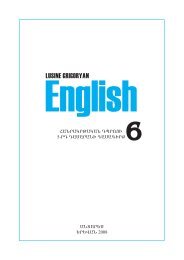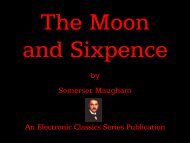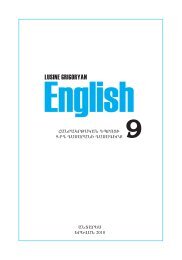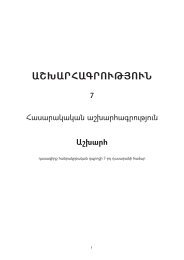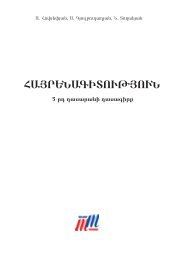Focus on Words
Focus on Words
Focus on Words
You also want an ePaper? Increase the reach of your titles
YUMPU automatically turns print PDFs into web optimized ePapers that Google loves.
1. a. each b. both c. by d. an<br />
2. a. the b. - c. a d. an<br />
3. a. must b. should c. ought to d. can<br />
4. a. at b. - c. <strong>on</strong> d. by<br />
5. a. many b. much c. some d. every<br />
6. a. an b. - c. the d. a<br />
JOINING SENTENCES<br />
Explanati<strong>on</strong>: Using transiti<strong>on</strong> words to introduce an effect (result)<br />
Using transiti<strong>on</strong>al words and phrases helps read papers more smoothly. They<br />
provide logical organizati<strong>on</strong> and understandability and improve the c<strong>on</strong>necti<strong>on</strong>s and<br />
transiti<strong>on</strong>s between thoughts<br />
Transiti<strong>on</strong> words always occur between two independent clauses.<br />
Cause (reas<strong>on</strong>) Transiti<strong>on</strong> word Effect (result)<br />
Tina lost her keys. C<strong>on</strong>sequently, she could not drive home.<br />
Tim was late. As a result, we could not go to the c<strong>on</strong>cert.<br />
James is not feeling well. Therefore, he will not be here today.<br />
I forgot that the cake was in As a c<strong>on</strong>sequence, it burned.<br />
the oven.<br />
There was a crash at the For this reas<strong>on</strong>, we were late to school.<br />
intersecti<strong>on</strong>.<br />
The committee voted against Thus,<br />
we must c<strong>on</strong>sider another idea.<br />
the proposal.<br />
Computer chess games are furthermore, their quality is improving.<br />
getting cheaper all the time;<br />
The cellar was dark; Moreover, mice nested there.<br />
REMEMBER:<br />
• C<strong>on</strong>sequently and thus are more formal<br />
• Put a comma after these if they are at the beginning of a sentence.<br />
e.g. I like to travel. Specifically, I enjoy places with old cathedrals.<br />
Use a semicol<strong>on</strong> to c<strong>on</strong>nect the two sentences.<br />
e.g. I like to travel; specifically, I enjoy places with old cathedrals.<br />
Use a comma before and after the transiti<strong>on</strong>al word/phrase in the middle of a clause.<br />
e.g. I like to travel, and, specifically, I enjoy places with old cathedrals.<br />
5. Complete the sentences with a c<strong>on</strong>nector indicating cause or<br />
result.<br />
1. Schools for girls were built c<strong>on</strong>sequently/because girls had a chance to learn about<br />
health and life skills.<br />
116


